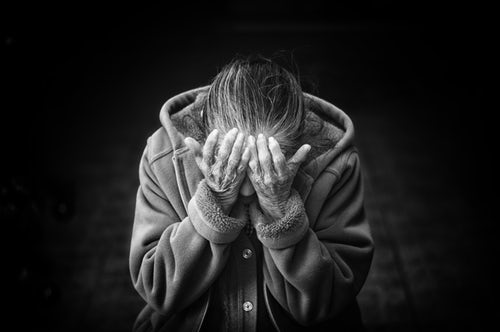Did you and your grief make it successfully through the holidays?
I hope so. But don’t let your guard down just yet.
Post-holiday stress and grief accumulation can show up—right about now.
It was exactly ten years ago this week that my husband, Chris, and two boys were enjoying a week of skiing in the White Mountains of Arizona. The trip had been planned for months. We were excited.
That was until my father rapidly deteriorated the end of November and beginning of December and then died the evening of Friday, December 11.
The grief I experienced from his loss was deep; the pain was accentuated by the falling out (an understatement) my mother had due to the circumstances surrounding his abrupt death.
My bright older son had uncharacteristically tanked his sophomore semester in college after a bout with depression. He completed his final, final exam—physics—forty-five minutes before his grandfather’s funeral. His dad picked him up on a campus street corner, and he changed into “funeral” attire in the car on the way to the mortuary.
We desperately needed this ski vacation R and R, and I thought getting away would help us heal. I wasn’t prepared for what happened to me during the trip.
Several days into the trip, I felt tired but relaxed as I prepared for bed. I took my time getting ready and then lay down on the floor next to do some stretching. Chris was watching a movie on the television. Without warning, my heart galloped into race-mode. My chest tightened in fear, and then my airway cramped up. The best I could manage were jerky little breaths that definitely weren’t providing sufficient oxygen.
First I tried getting control over my breathing, but the heart pounding only intensified. My chest tightened to the point of pain. I thought I was having a heart attack, and I wondered if I should call out to Chris that he needed to call an ambulance.
My sports psychology kicked in.
I managed to roll over onto my knees and hands, and, like any trained athlete, started talking to myself. I took several deliberate hyperventilating breaths and then forced myself to take several deeper and slower ones. Seconds ticked away as my breathing became less labored, and my heart rate slowly dropped. Another minute longer and my heart beat registered normal.
And it hit me: I was having a panic attack.
But it took several more minutes of self-reflection to figure out why.
I had managed to pull myself together to get everything ready for the holidays and successfully get through them, but the stress of grief finally bubbled to the surface and overwhelmed my body. Not just my emotional, psychological body but my physical one. It was a perfect storm and was a perfect example of the mind-body connection.
A couple of days later, grief and melancholy struck again. As I was swooshing down a beautiful run at the top of the mountain, my gaze landed on the sweeping horizon and miles of snow-covered prairie. Instead of paying attention to what I was doing, my mind took a trip down memory lane. Happy times with my father gathered in my brain.
Taking your eyes off your run while skiing to gawk at the landscape isn’t recommended. Neither is losing your concentration. The inevitable happened. I splatted. Not a rough fall, but an abrupt one that knocked my conscious back to the present and my activity. I sighed. I was more tired and overwhelmed than I had imagined.
It was then that I realized I needed to be even more careful and protective of my emotions, my body, and my spirit. No matter how tough I was, or how much I thought I could handle, I wasn’t anywhere near being healed. Walking through this new type of grief would take months.
It wasn’t the last time I would experience a panic attack. Lying in bed one night, realizing that my father was truly gone from this earth and would not be coming back to it in my lifetime—to talk to, laugh with, get advice from, share a happy even with—sent me into another hyperventilating and heart-pounding session.
And so it is with experience that I gently suggest that you guard your heart, your body, your spirit, and your mind as you continue to walk through any new grief. Just because the holidays are over, and you’ve survived them, doesn’t mean the worst has passed.
Take extra good care of yourself, and don’t apologize to friends or family for what you may need to do—or not do—to protect yourself and heal.
Until next time,
May your 2020 be full of blessings you hadn’t expected as you continue to heal.
Andrea
Andrea Arthur Owan is an award-winning inspirational writer, fitness pro, and chaplain. She writes and works to help people live their best lives — physically, emotionally, and spiritually.




